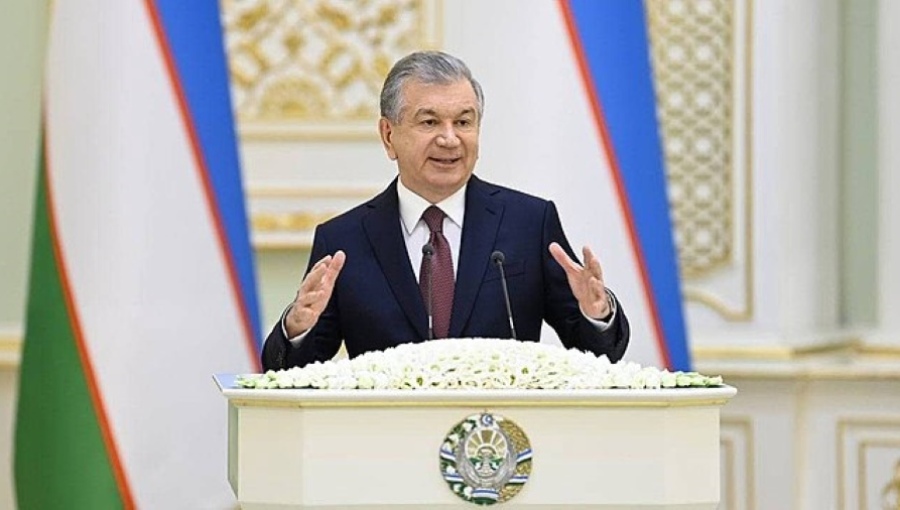Since assuming the presidency of Uzbekistan in December 2016, Shavkat Mirziyoyev has been at the forefront of a series of transformative initiatives, marking a significant departure from the past and garnering positive attention both domestically and internationally. Under his leadership, Uzbekistan has witnessed notable strides in economic development, political openness, and social reform, positioning the country as a rising star in Central Asia.
Economic Reforms:
President Mirziyoyev has spearheaded comprehensive economic reforms aimed at attracting foreign investment, fostering entrepreneurship, and diversifying the nation’s economy. Uzbekistan has embarked on a path of liberalization, streamlining business regulations, and creating a more welcoming environment for investors. This has resulted in increased foreign direct investment and a burgeoning private sector, contributing to economic growth and job creation.
Infrastructure Development:
Recognizing the importance of modern infrastructure for sustained economic progress, President Mirziyoyev has prioritized large-scale infrastructure projects. The development of transport corridors, energy infrastructure, and technological advancements has not only enhanced connectivity within the country but has also positioned Uzbekistan as a key player in regional trade and cooperation.
Political Openness:
In a departure from the past, President Mirziyoyev has taken significant steps toward political openness and inclusivity. The government has engaged in dialogue with civil society, allowing for a more participatory approach to governance. Reforms in the legal system and the release of political prisoners demonstrate a commitment to fostering a more democratic and accountable political environment.
Foreign Policy Shifts:
Mirziyoyev’s administration has pursued a pragmatic and open foreign policy, seeking to strengthen ties with neighboring countries and the international community. Uzbekistan’s engagement in regional organizations and its commitment to resolving longstanding disputes have contributed to a more stable and cooperative Central Asian region.
Social Reforms:
President Mirziyoyev has championed social reforms with a focus on improving healthcare, education, and social welfare. Investments in healthcare infrastructure and education initiatives reflect a commitment to enhancing the well-being of the Uzbek people. Additionally, efforts to promote gender equality and cultural preservation showcase a multifaceted approach to societal development.
Digital Transformation:
President Mirziyoyev has recognized the importance of technology in the modern era and has actively pursued a digital transformation agenda. Initiatives such as the introduction of e-governance services, the development of a digital economy, and the promotion of innovation hubs have positioned Uzbekistan as a player in the global digital landscape. These efforts not only enhance efficiency in government services but also foster an environment conducive to technological innovation and entrepreneurship.
Agricultural Reforms:
Acknowledging the significance of agriculture in Uzbekistan’s economy, Mirziyoyev has implemented reforms to modernize the agricultural sector. Measures such as the allocation of land to private farmers, the introduction of advanced farming techniques, and the improvement of irrigation systems aim to boost agricultural productivity, ensuring food security and creating new opportunities for rural communities.
Tourism Promotion:
The administration has actively worked to promote Uzbekistan as a tourist destination, capitalizing on the country’s rich cultural and historical heritage. Simplified visa procedures, the restoration of historical sites, and the development of tourism infrastructure have contributed to a notable increase in tourist arrivals. This not only boosts the economy but also enhances global recognition of Uzbekistan’s cultural treasures.
Environmental Stewardship:
Mirziyoyev has shown a commitment to environmental sustainability, realizing the importance of addressing ecological challenges. The president has supported initiatives for afforestation, water resource management, and the development of renewable energy sources. These efforts underscore Uzbekistan’s commitment to environmental conservation and resilience in the face of climate change.
Educational Reforms:
The government has prioritized education as a key driver of national development. Reforms in the education sector include curriculum updates to meet the demands of the modern workforce, investments in educational infrastructure, and efforts to enhance the quality of higher education institutions. These initiatives aim to equip the youth with the skills necessary to contribute effectively to the nation’s development.
Social Safety Nets:
In recognition of the need for social safety nets, President Mirziyoyev has implemented programs to support vulnerable populations. Targeted welfare schemes, healthcare accessibility improvements, and poverty alleviation initiatives demonstrate a commitment to ensuring that the benefits of economic growth are shared equitably across society.
Cross-Border Cooperation:
Uzbekistan, under Mirziyoyev’s leadership, has actively pursued regional cooperation. The president has engaged in diplomatic efforts to resolve historical disputes and foster collaboration with neighboring countries. By participating in regional organizations and initiatives, Uzbekistan aims to contribute to stability and prosperity in Central Asia.
Conclusion:
Shavkat Mirziyoyev’s presidency has brought about positive changes in Uzbekistan, fostering an environment of economic dynamism, political openness, and social progress. While challenges remain, the commitment to reforms and the strides already taken paint a promising picture for the future of the country. As Uzbekistan continues to position itself on the global stage, Shavkat Mirziyoyev’s leadership appears to be steering the nation towards a path of sustained growth, prosperity, and increased international cooperation.










